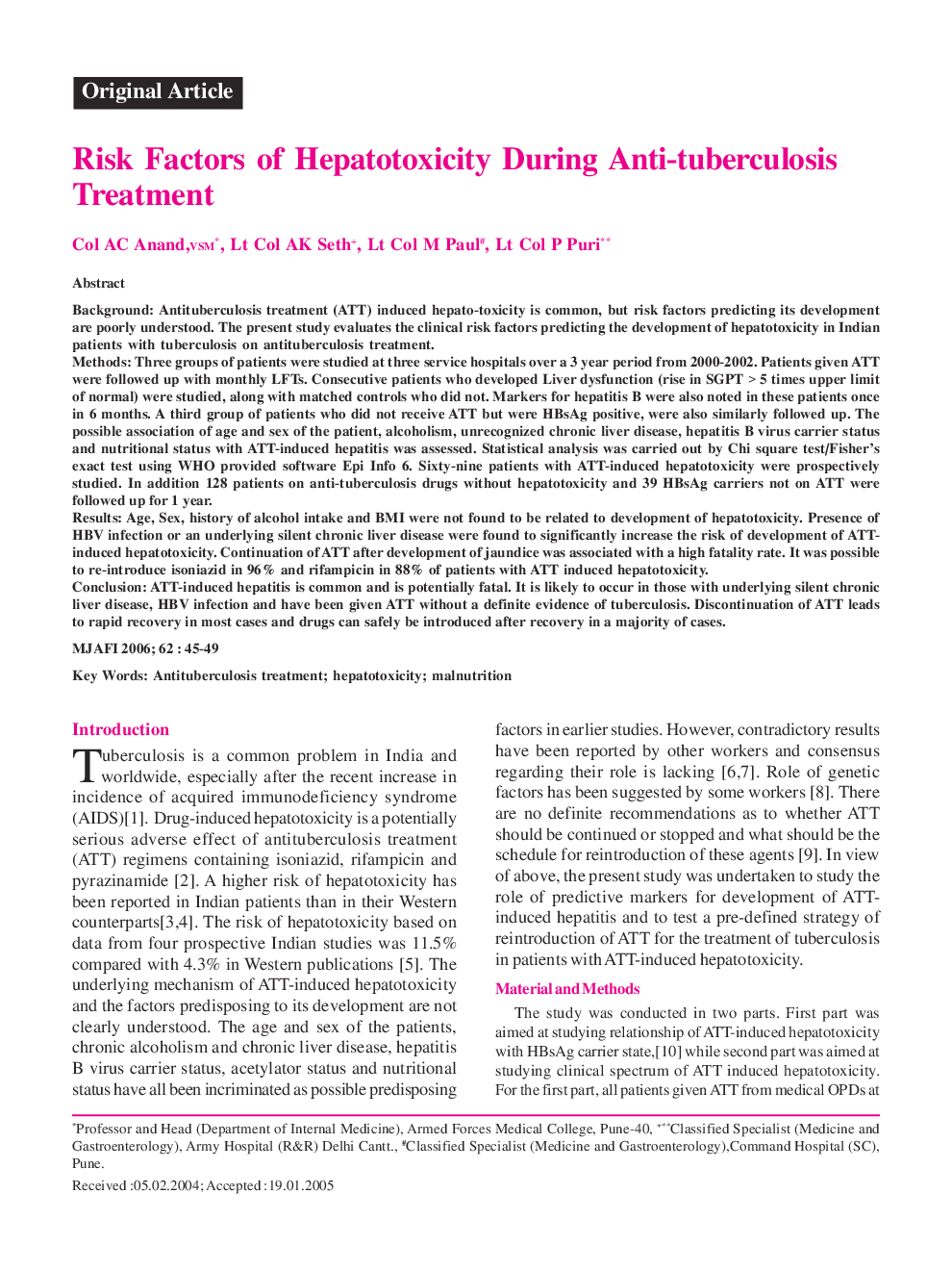| Article ID | Journal | Published Year | Pages | File Type |
|---|---|---|---|---|
| 3162551 | Medical Journal Armed Forces India | 2006 | 5 Pages |
BackgroundAntituberculosis treatment (ATT) induced hepato-toxicity is common, but risk factors predicting its development are poorly understood. The present study evaluates the clinical risk factors predicting the development of hepatotoxicity in Indian patients with tuberculosis on antituberculosis treatment.MethodsThree groups of patients were studied at three service hospitals over a 3 year period from 2000-2002. Patients given ATT were followed up with monthly LFTs. Consecutive patients who developed Liver dysfunction (rise in SGPT > 5 times upper limit of normal) were studied, along with matched controls who did not. Markers for hepatitis B were also noted in these patients once in 6 months. A third group of patients who did not receive ATT but were HBsAg positive, were also similarly followed up. The possible association of age and sex of the patient, alcoholism, unrecognized chronic liver disease, hepatitis B virus carrier status and nutritional status with ATT-induced hepatitis was assessed. Statistical analysis was carried out by Chi square test/Fisher's exact test using WHO provided software Epi Info 6. Sixty-nine patients with ATT-induced hepatotoxicity were prospectively studied. In addition 128 patients on anti-tuberculosis drugs without hepatotoxicity and 39 HBsAg carriers not on ATT were followed up for 1 year.ResultsAge, Sex, history of alcohol intake and BMI were not found to be related to development of hepatotoxicity. Presence of HBV infection or an underlying silent chronic liver disease were found to significantly increase the risk of development of ATT-induced hepatotoxicity. Continuation of ATT after development of jaundice was associated with a high fatality rate. It was possible to re-introduce isoniazid in 96% and rifampicin in 88% of patients with ATT induced hepatotoxicity.ConclusionATT-induced hepatitis is common and is potentially fatal. It is likely to occur in those with underlying silent chronic liver disease, HBV infection and have been given ATT without a definite evidence of tuberculosis. Discontinuation of ATT leads to rapid recovery in most cases and drugs can safely be introduced after recovery in a majority of cases.
